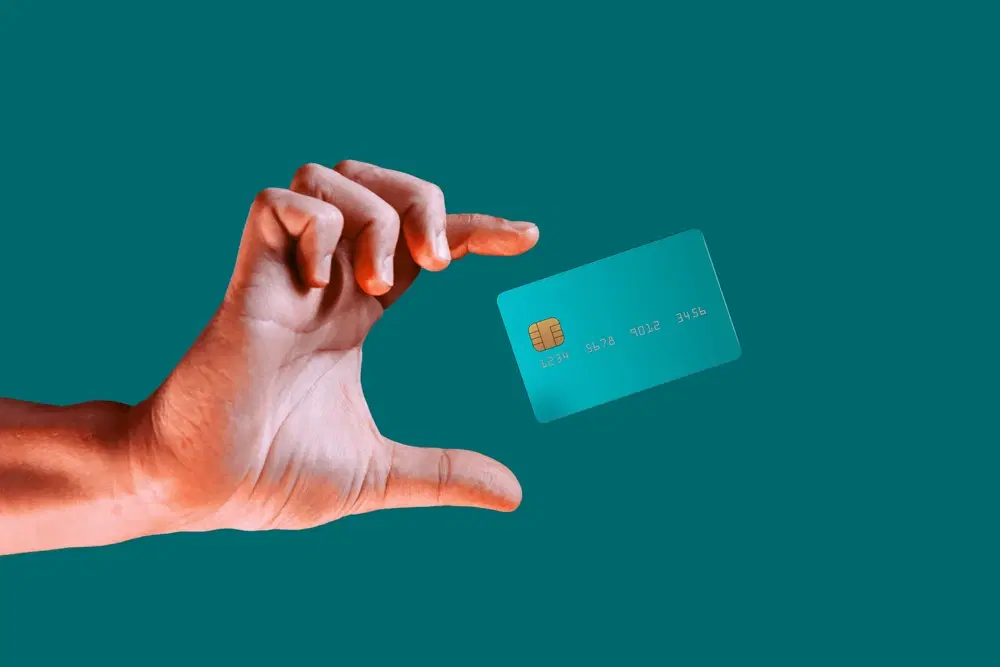
Cards
•04 min read
-ed507771-df04-4fb3-9af5-bae11cb611a6.png&w=3840&q=75)
Many students face challenges managing tuition fees, buying educational materials, and paying for online courses. A student credit card can be a smart financial tool to manage these expenses while building credit confidence over time. By choosing a credit card for education, students can learn the art of responsible spending and get rewarded with benefits like cashback and NeuCoins, which reflect real savings on every transaction.
Student credit cards are typically designed for young adults embarking on their educational and professional journeys. Unlike regular credit cards, these cards often come with lower credit limits, minimal fees, and benefits tailored for educational needs. The primary goal is to help students build their credit history responsibly and offer a pathway to greater financial opportunities in the future.
Using a credit card for education payments offers several advantages. They simplify the process of paying tuition fees, purchasing textbooks, or subscribing to online courses. Many cards provide benefits such as cashback, reward points, and occasional discounts on education payments. Although there is a myth that credit cards automatically lead to debt, they can actually help students learn budgeting skills if they are used responsibly.
It is important to use a credit card wisely to avoid accumulating debt. Regulatory safeguards in India, such as RBI guidelines, ensure that student credit cards are offered with proper checks. Students are encouraged to pay bills on time, avoid overspending, and always make the most of the rewards while keeping their financial health in focus.
Several credit cards in India are crafted with the education sector in mind. For example, the SBI Student Credit Card offers low annual fees and rewards that are particularly beneficial for tuition and education-related expenses. Similarly, the Tata Neu HDFC Bank Credit Card provides cashback on payments related to tuition fees and subscribes to discounts on online courses. Additionally, options from IDFC First Bank Limited include features such as zero joining fees and flexible repayment options that appeal to students.
Students without a regular income can still access these financial tools through options that accommodate co-signers or require proof of enrollment. Many cards are designed to consider the unique financial circumstances of students, ensuring that even with minimal income, a credit card for education remains within reach.

A simple comparison of key features such as annual fees, interest rates, reward programs, and eligibility requirements can help students choose a suitable card. Though each card has its own terms and conditions, the common thread is their focus on making education-related payments easier and more affordable.
Generally, applicants must be 18 years or older and provide proof of enrollment in an educational institution. Specific cards, like those from SBI and Tata Neu HDFC Bank Credit Card, may have additional requirements. Students should be prepared with the necessary documents and ensure that they understand the terms before proceeding.
Applying for a student credit card is straightforward. First, complete the online or offline application form, ensuring that all information is accurate. Next, double-check that the required documents are attached. Finally, wait for approval, which may involve verifying academic enrollment and, in some cases, a parental co-signer.
The application typically requires an ID proof, address proof, and a document confirming enrollment in an educational institution. Keeping these documents handy can streamline the approval process.
When used wisely, a credit card becomes more than just a payment tool; it serves as a means to build a strong credit history. Paying bills on time and maintaining spending within set limits can positively impact your credit score. Over time, this results in easier access to loans and better financial opportunities after graduation.
Here are a few tips to help students use their credit cards effectively: always pay your bills on time to avoid interest charges; keep spending within your credit limit; and plan your purchases so that rewards and cashback are used strategically for educational expenses.

While credit cards provide great benefits, it is essential not to rely solely on them for all expenses. Avoid overspending and missing payments. Instead, consider creating a budget and perhaps complementing your income with part-time work to ensure all financial commitments are met without stress.
Yes, credit cards can help by offering tools such as cashback, rewards, and discounts on tuition fees and course subscriptions, all while helping build your credit history.
The best card depends on your personal needs, though options like the SBI Student Credit Card and Tata Neu HDFC Bank Credit Card specifically offer benefits aimed at students.
Yes, many cards are designed for students with minimal income. A parental co-signer or proof of enrollment is usually required to support the application.
Typically, you will need ID proof, address proof, and a document confirming your enrollment in an educational institution.
By paying bills on time, keeping expenditures within limits, and planning your spending carefully, you can maintain a healthy credit record.
Student credit cards offer a practical solution to manage education expenses while building a strong financial foundation. They empower students to develop responsible credit habits early on, which can translate into better financial opportunities later in life. By using a credit card thoughtfully, paying bills on time, and staying within your limits, you can pave the way for a secure financial future. Remember, the focus is on building financial confidence while managing day-to-day expenses in a smart and informed manner.